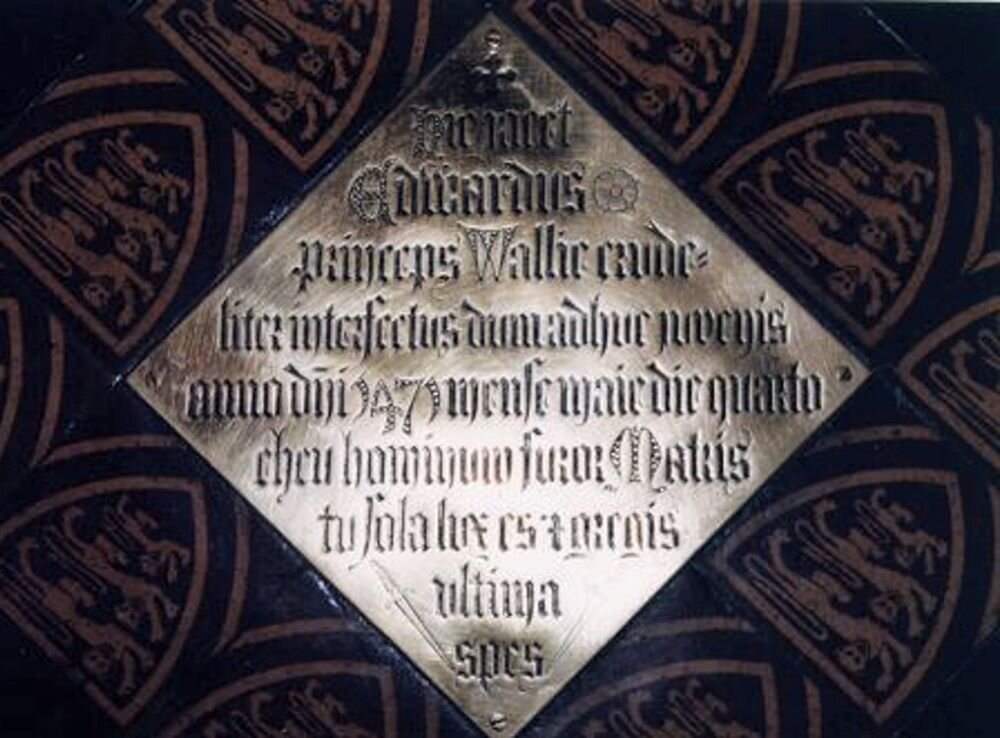May 11th 1471: Margaret meets Edward as a Prisoner

Prince Edward’s Epitaph, Tewkesbury Abbey
[Edward] determined himself to go to Coventry, as he so did the xi. day of the said month; where he refreshed well such as were left with him of his host, by the space of iij days; and thither was brought unto him Queen Margaret. He forgot not to send from thence his messengers, with writings, all about the countries near adjoining, to such in especial as he trusted best that they would do him service. [The Arrivall]
This was the end of Margaret’s last gambit. Her world was in ruins and she was a broken woman. Her son and heir, Prince Edward was dead. His epitaph in the quire of Tewkesbury Abbey is eloquent; “Thou art the sole light of thy Mother, and the last hope of thy race”. All that remained was her husband, poor, bewildered Henry, who could never motivate an army, as his recent exploits had shown. This was not a time in history when extreme punishments were meted out on women, so Margaret knew that her future was a life in captivity.
Meanwhile, Edward settled in to Coventry and set about confronting the immediate problems of rebellions. Sir Henry Vernon’s letters survive as part of a unique and valuable archive, but ‘messengers with writings’ were sent to many more who didn’t keep them but probably responded to Edward’s call with more alacrity than Vernon. Now was a time to show the king whose side you were on if you wanted to prosper.
Edward was working on the loyalty of his subjects. The Leet Book records ‘the oath that the king left here’:
I become true and faithful liegeman to my sovereign and liege lord king Edward the iiijth, and his heirs, kings of England, and to him faith and truth shall bear from henceforth of limb and life, and fully his part shall take and him at all times serve and assist to the uttermost of my power against all earthly creatures; and if I know hereafter anything spreading to the hurt or prejudice of his most noble person or estate royal, or contrary to the great wele of his realm, or any other inhabitants I shall put me in duty to let it, and if I may not I shall in all haste possible open and show the same unto his good grace or to the lords of his council; and in this and all other things I shall behave and demean me towards his highness during my life as a true and faithful subject oweth to do to his sovereign liege lord. So help me God and holy do me and by these holy evangelists.
.


No comments:
Post a Comment